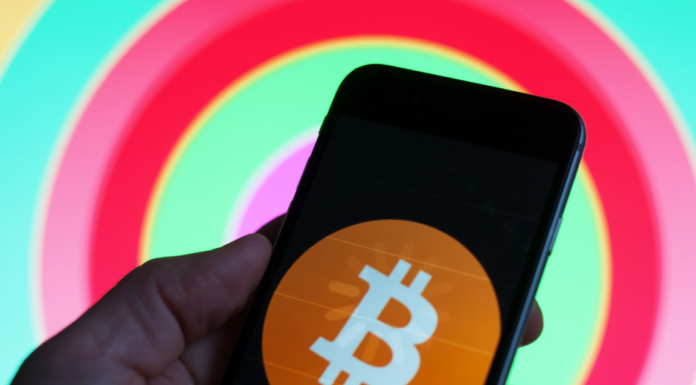
It's Not a real coin, it is "cryptocurrency," an electronic form of payment that's produced ("mined") by plenty of people globally. It permits peer-to-peer trades instantly, globally, for free or at very low price.
Bitcoin was devised after decades of study into
Bitcoin is an Open-source merchandise, accessible by anyone who's a user.
Where does this come from?
Bitcoin A game produces a bitcoin. It's complicated and time- and - energy-consuming.
Only 21 Million bitcoins are ever to be mined (roughly 11 million are now in circulation). The mathematics problems the network computers resolve get progressively more challenging to maintain the mining operations and provide in check.
This system also validates all the trades through cryptography.
How can Bitcoin work?
Internet Users transfer electronic assets (pieces) to each other on a network. Bitcoin pockets store and use this electronic money. Users may sell from the digital ledger by trading their Bitcoin to somebody else who wants in.
There are smartphone programs for conducting mobile Bitcoin trades and Bitcoin exchanges are populating the net.
How is Bitcoin appreciated?
Bitcoin Is not controlled or held by a bank; it is totally decentralized. Unlike real-world money it can't be devalued by banks or governments.
Instead, Bitcoin's worth lies simply in its own Its worldwide currency values fluctuate based on supply and demand and market speculation; as more individuals create wallets and maintain and invest bitcoins, and much more companies accept it, Bitcoin's value will rise. Banks are now hoping to appreciate Bitcoin and some investment sites predict the purchase price of a bitcoin will likely be a few thousand dollars in 2014.
What are its advantages?
There are advantages to consumers and retailers looking to use this payment option.
1. Quick transactions - Bitcoin is moved instantly over the web.
2. No fees/low fees -- Unlike credit cards, Bitcoin may be used at no cost or very low prices. This improves profit margins earnings.
3. Eliminates fraud risk -Just the Bitcoin proprietor Can send payment to the intended receiver, who's the only person who will receive it. The system knows the transfer has happened and trades are validated; they can't be challenged or removed. This is big for online retailers that are frequently subject to credit card processors' evaluations of whether a transaction is fraudulent, or companies that pay the high cost of credit card chargebacks.
4. Data is Secure -- As we've seen with recent hacks on national retailers' payment processing systems, the web isn't always a secure location for private data. With Bitcoin, users don't give up personal information.
a.
b. Transactions are "signed" digitally by combining the private and public keys; a mathematical function is implemented along with a certificate is generated demonstrating that the user initiated the trade.
c. The Merchant/recipient never sees your confidential information (title, number, physical address) so it is somewhat anonymous but it's traceable (into the bitcoin address on the public key).
5. Convenient payment system -- Merchants can use Bitcoin entirely as a payment method; they don't need to hold any Bitcoin money since Bitcoin could be converted into dollars.
6.
7. Easy to monitor -- The network monitors and Permanently logs every trade in the Bitcoin block series (the database). In the case of potential wrongdoing, it's easier for law enforcement officials to follow these trades.
8. Micropayments are potential - Bitcoins can be broken down to a single one-hundred-millionth, so running small obligations of a buck or less becomes a free or near-free transaction.
Listed below are a few examples of trades:
At Tapping the "Verify" button completes the trade. If the user does not have any Bitcoin, the system converts dollars in his account to the electronic currency.
The merchant can convert that Bitcoin into bucks if it needs to, there were no or very low processing charges (rather than 2 to 3%), no hackers can steal private consumer information, and there's absolutely not any risk of fraud. Very slick.
Bitcoins in hospitality
Hotels can take Bitcoin for Dining and room payments on the premises for guests who want to pay by Bitcoin with their mobile pockets, or PC-to-website to cover a reservation online. A third-party BTC merchant chip can help out with tackling the transactions that it simplifies within the Bitcoin network. These processing customers are installed on tablets in the institutions' front desk or at the restaurants for consumers with BTC smartphone programs. No credit cards or cash have to change hands.
Quick and the chip can convert bitcoins into money and produce a daily direct deposit to the institution's bank account. It was announced in January 2014 two Las Vegas hotel-casinos will take Bitcoin payments at the front desk, in their own restaurants, and at the gift shop.
It sounds great - so what is the catch?
Business owners must consider issues of involvement, cost and security.
http://bitc0inprice.soup.io/post/646597376/Should-You-Invest-Bitcoin
• A relatively few of ordinary consumers and retailers currently use or know Bitcoin. However, adoption is growing globally and technologies and tools are being developed to make participation easier.
• It's the World Wide Web, so hackers are risks to the exchanges. Bitcoins can be stolen as with other money, so vigilant network, database and server security is paramount.
Safeguard their bitcoin pockets that contain their private keys.
• Bitcoin Isn't
• Bitcoins are comparatively expensive. Recent prices and selling prices are available on the internet exchanges.
The A business may opt to attempt Bitcoin to save credit card and bank fees, as a customer advantage, or to see whether it helps or hinders sales and profitability.
Are you contemplating accepting Bitcoin? Share your ideas and experiences with us.
References
Bitcoin
https://en.bitcoin.it/wiki/Main_Page
No comments:
Post a Comment